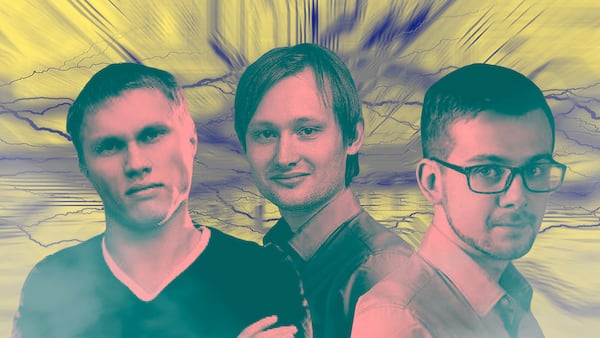A version of this story appeared in our The Guidance newsletter on May 6. Sign up here.
Quick question: is every crypto narrative now a legal story?
The industry has long bubbled with the occasional lawsuit and regulatory action — thanks Gary Gensler! — but these days it feels like the pot has blown its lid and spilled all over the floor.
There was the Craig Wright civil trial in London, then the sentencing of Sam Bankman-Fried to a 25-year prison term, and last week the surprising news that Changpeng Zhao, SBF’s onetime archrival, pulled a very manageable four-month stretch in US prison for failing to do a proper job of curbing money laundering at Binance.
But when you cut through all this action, there is just one case that can truly reset the course of the 15-year-old cryptocurrency industry. And it’s coming to a head on May 14.
This is when a Dutch three-judge panel will hand down a verdict on Alexey Pertsev, the Tornado Cash dev charged with laundering $1.2 billion in illicit assets for a bevy of bad actors, including North Korea’s Lazarus Group of hackers.
Pertsev may not have the celebrity wattage of SBF or the global influence of CZ, but his case drives to the heart of much of what makes crypto tick — codewriting and business models predicated on online privacy.
During Pertsev’s two-day trial in March, the 30-year-old Russian national defended his role at the crypto mixer by arguing that its technology — namely, smart contracts — precluded him from knowing who was using its services to anonymise their transaction.
That knowledge, quite literally, wasn’t part of the programme, he said.
So to punish him over whom Tornado served is not only a misunderstanding of the technology, it’s also a miscarriage of justice, he suggested.
“I never had the desire to help or tolerate criminals in any way, I have a different mindset,” Pertsev told the court. “I hope you understand that.”
Nonsense, said Dutch public prosecutor Martine Boerlage.
She said Tornado Cash was a company selling a service like any other, and its officers, including Pertsev, could not hide behind crypto-speak to avoid responsibility for breaking the law.
But the whole point of decentralised finance is to enable permissioness transactions with no need for intermediaries.
As it happens, brokers, exchanges, and other middle-persons are the ones who know the parties and counterparties, and more importantly, vet their bonafides under punishment of law.
So you can see what’s at stake.
If three Dutch judges in eight days’ time decide Pertsev is guilty, they will also be convicting the conceit that blockchain-based transactions lie outside the international anti-money laundering legal system erected over the last 25 years.
SBF was nailed for old fashioned fraud. CZ pleaded guilty to failing to implement anti-money laundering controls. Neither case was novel.
Pertzev, on the other hand, is being judged for what he should have known, and should have done, the innovations of DeFi notwithstanding.
While the crypto industry will reckon with the fallout from a guilty verdict, the young dev will have a more pragmatic concern.
He’ll be bracing for a potential five-year prison term.
Email the author at ed@dlnews.com.




